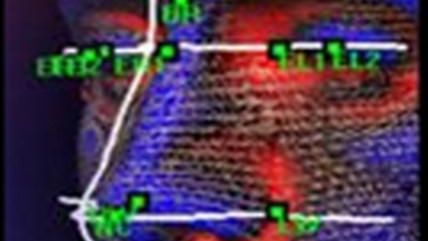Just How Reliable and Widespread is FBI Facial Recognition Technology? EFF Sues To Find Out.


The Federal Bureau of Investigation has been happily touting its Next Generation Identification technology — within limits. That is, the feds are happy to boast on their Website about their "multi-million dollar contract" with Lockheed Martin Transportation and Security Solutions to implement state of the art biometric systems to go "beyond fingerprints," but they're not so eager to go beyond marketing happy talk. So, after waiting a year on three Freedom of Information Act requests intended to reveal just what the feds are up to, the Electronic Frontier Foundation is suing to make the FBI cough up the goods.
From EFF:
Since early 2011, EFF has been closely following the FBI's work to build out its Next Generation Identification (NGI) biometrics database, which would replace and expand upon the Integrated Automated Fingerprint Identification System (IAFIS). The new program will include multiple biometric identifiers, such as iris scans, palm prints, face-recognition-ready photos, and voice data, and that information will be shared with other agencies at the local, state, federal and international levels. The face recognition component is set to launch in 2014.
"NGI will result in a massive expansion of government data collection for both criminal and noncriminal purposes," says EFF Staff Attorney Jennifer Lynch, who testified before the U.S. Senate on the privacy implications of facial recognition technology in July of last year. "Biometrics programs present critical threats to civil liberties and privacy. Face-recognition technology is among the most alarming new developments, because Americans cannot easily take precautions against the covert, remote, and mass capture of their images."
Specifically, EFF wants to know about "agreements and discussions between the FBI and various state agencies regarding the face-recognition program; records addressing the reliability of face-recognition technology; and documentation of the FBI's plan to merge civilian and criminal records in a single repository. EFF is also seeking disclosure of the total number of face-recognition capable records currently in the FBI's database, as well as the proposed number at deployment."

Facial recognition technology has been something of a law-enforcement holy grail in recent years, with lots of money spent and lots of attempted implementations, but spotty and unreliable delivery. Post Boston bombings, with surveillance cameras a hot topic, the possibility of linking those cameras to facial recognition technology is irresistible — especially since government agencies already have massive databases of face shots sorted by name.
What databases? Why, drivers license records, of course. The Washington Post reported last month that 26 states allow driver's license records to be scanned with facial recognition software, making for more than 120 million searchable mugshots. Despite the nominal 2014 target date, odds are good that many, if not all, of those states are using some implementation of FBI technology, since NextGov reported in 2011 that the FBI was launching "a nationwide facial recognition service in select states" based on the Next Generation Identification program. Two years later, that program is certainly more widespread.
With surveillance cameras proliferating around the country, traffic cameras being repurposed for wider duties, and the resulting snapshots being compared to existing databases covering half the adult population, it just might be worth knowing how widespread the FBI program has become, and how accurate its matches are, when your face is being compared to those of suspected criminals and terrorists.


Show Comments (27)